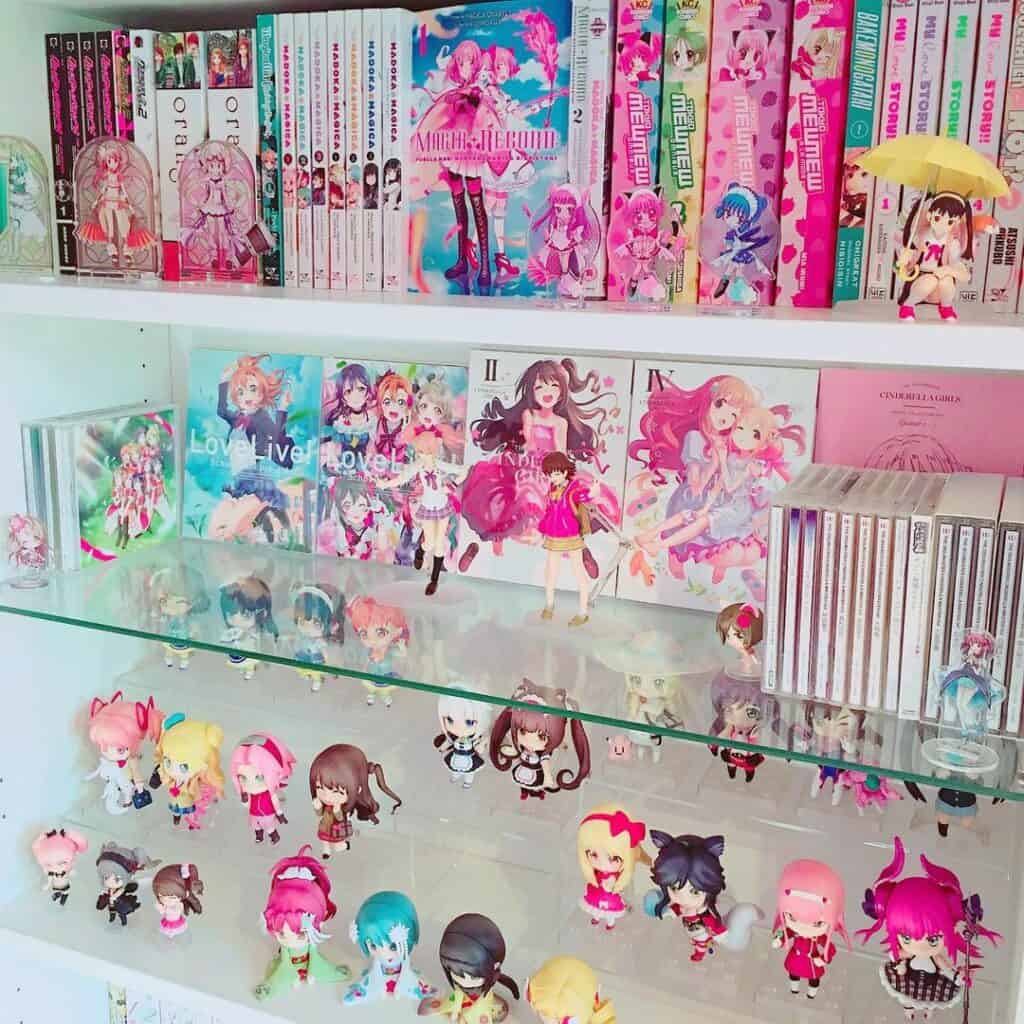Do you watch anime? Do you love romance stories with a light-hearted feel to them? Then otome anime is just for you!
So what is the meaning of Otome? Otome is a Japanese word meaning young maiden or girl. Otome anime is a genre of Japanese anime targeted toward female audiences. In Otome anime, the heroine is usually a girl who has just entered into adulthood and begins to have romantic relationships for the first time.
Otome Anime often includes cute outfits for the characters as well as music from popular artists in Japan such as Kalafina and ClariS.
It also features beautiful scenery like cherry blossoms falling on snow-covered mountainsides or sakura petals blowing through a peaceful forest clearing.
These visuals are not only visually pleasing but they evoke feelings of nostalgia in viewers because these images remind them of their own memories


Otome Meaning
So, what does Otome mean and what does it refer to? Otome anime, which literally translates to “young lady anime”, are shows targeted towards a female demographic.
Otome animes typically have romantic overtones or even end up as romance stories. They tend to be lighthearted and pleasant in tone when compared to more dramatic series with harsh tones, such as the shoujo genre.
However, this doesn’t mean they’re all happy endings!
It just means that they’re lighter fare than their counterparts. Generally speaking, there are two main types of otome anime on Japanese broadcast television at any given time: those for older girls and those for younger girls.
Otome anime can include a wide spectrum of stories such as feudal Japan, European RPG fantasy worlds, or lives of modern schoolgirls in Japan.
Some otome animes have female protagonists while some males are still seen as members of the audience who exist only to be pined after by the protagonist (aka “fandoms”).
Difference Between Otaku and Otome
There are a lot of different terms being coined, particularly around anime. Two such terms are otaku and otome which are vastly different.
If you’re unsure of what the difference is, let me clue you in. Here is the difference between otaku meaning and otome definition:
Otaku is a term used to describe people who are obsessed with something, such as anime, manga, or video games. Otome means maiden in Japanese and refers to a girl who is obsessed with anime or manga.
Otaku is a more popular term to describe a person than otome. Otaku can be used to describe anyone, regardless of their gender. The term is quite broad and someone who is a fan of something like the railways can be branded as a railway otaku.
Otome is predominantly used as a genre of simulation games but is slowly becoming used as a way to describe some female otaku.
In Japan, the term otaku is used as a slur against certain people, although in recent years more young people are self-identifying as otaku. At its worst, otaku is used as an insult against people with consuming interests such as anime and manga. Otaku are seen as social outcasts, or anti-social too preoccupied with their hobbies.
At its best, otaku is a subculture that over 42% of young people identify as. The term otaku casts a wide net and there are many classifications within. The most populous group is the manga otaku with over 350,000 individuals.
There are several other groups including audio-visual equipment otaku with 60,000 individuals, automobile otaku with 140,000, and travel otaku with 250,000 individuals. The people classed as otaku are highly passionate about their subjects and spend most of their time on them.

This is why otaku is so heavily associated with anime, as that tends to be an outspoken and predominant group. However, the term is a source of contention among some fans due to the negative connotations attached.
In 1989 the term found negative media attention when reporters began to refer to Tsutomu Miyazaki as “the Otaku Murder.” In recent years, the term has become less negative, and now people outside are identifying as otaku. Despite this fact, there are similar identifying words in English such as nerd or geek.
When someone is referred to as an otome, it is in much the same way as an otaku. It could be used as a pejorative, but it could also just be used to describe someone obsessed with anime and/or manga. The major difference between the two is otome exclusively refers to females, as it translates into a maiden.
Is It Okay to Be Otaku or Otome?
Traditionally the term Otome and the term Otaku are reserved just for people within Japan. However, in recent years some international fanboys and fangirls have adopted the term. Although the term is not that common, it has found some love from the anime and manga communities.
As with the words nerd and geek, otaku has seen a rise in its popularity as people flock to self-identify as it. The word otaku is less a derogatory term for the unwashed anime binge-watcher and more a movement of excited fans. Even the world-famous minimalist Marie Kondo identifies as an otaku.
She went as far as to tell Forbes that she credits her success to being an otaku. That sort of high-level endorsement helps to legitimize the subculture.
Calling yourself an otaku isn’t the obvious choice, however. This is a Japanese word used to describe Japanese people, and its adoption by western cultures is hardly necessary. The term is essentially interchangeable with either nerd or geek.
You may feel like because the thing you are a fan of has its heritage in Japan that you should use the term. While that’s unlikely to rustle any feathers in Japan, it will be looked upon as odd. The term still holds negative connotations for many in the country.
Partly due to the unfortunate links to the murder of Tsutomu Miyazaki but also because otaku is used as a self-deprecating remark for many. However, it is a free world and you can call yourself whatever you wish. It’s just not going to ingratiate you in Japanese culture the way you might wish.
Likewise, with otome, the term is reserved for Japanese girls obsessed with video games, anime, and manga. You may want to adopt this term for yourself if these are matching interests. It certainly has a better ring to it than the overused “gamer girl” brand.
Can Someone Be Both Otaku and Otome?
The typical image of an otaku is a man who stays in his one-room apartment, likely doesn’t wash, and never leaves. It’s not a fair representation at all, not least because anyone, regardless of gender can be an otaku. The reason for this is because otaku are often confused with hikikomori, the name given to Japan’s reclusive residents.
While many hikikomori can be otaku as well, the truth isn’t the same the other way. Otaku can be regular, contributing members of society and don’t necessarily have to lock themselves away.

There are more male hikikomori and otaku than there are females, but there is still a sizable number of girls. A girl can be both otaku and otome with the two terms essentially meaning the same thing. If a female otaku has a particular interest in anime or manga, then the two names can be interchangeable.
Otome literally means maiden in Japanese, so it’s a term that is specifically used to reference female fans of anime or manga. The term cannot be applied to males, and as such male fans of anime would have to be known as otaku. Although the term otome is not used that widely in this context, it is much more likely to hear otaku being used.
Otome is also used to refer to girls who play otome games, which are simulation games. Many men also play these games, but the term still does not apply to them. Men who like these games would fall under the video game otaku category.
What Do the Japanese Think of Otaku and Otome?
Otome is a much less common term in Japan than otaku, and most Japanese people wouldn’t realize was used in this way. Otaku on the other hand is much more widely used. There is a divide between young and old when it comes to the word otaku.
Older generations would just see an otaku as someone who was anti-social, and unwilling to engage with reality. The use of otaku in this way would be in a derogatory sense, slightly harsher than how geek or nerd is used in the west.
Younger people however tend to have a different view and started to reclaim the word. The otaku subculture is very popular, and people can build their careers around their consuming interests.
It’s much less of a derogatory word among young people, although it is sometimes used in a self-deprecating way. Someone from Japan might not necessarily refer to themselves as an otaku, even if they tick all the boxes.
The people of Japan likely don’t mind if westerners use either term. Japanese people tend to be very grateful when international people show an interest in their country or culture, since anime has proven to be very popular around the world, it’s become a point of pride for the country.
Although they may not understand why someone would identify as an otaku (or otome), it’s unlikely to bother them. So if otaku or otome is how you want to identify, feel free to go right ahead!




